Original, He Chang, Power Plant
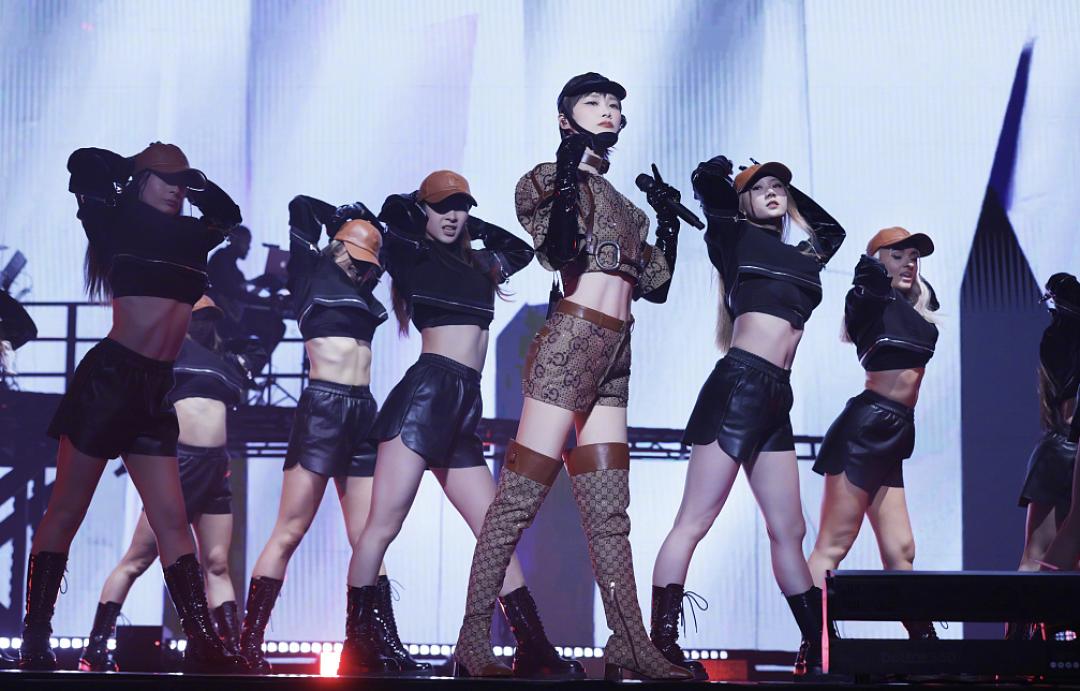
Reporter, He Chang
Editor, Gao Yulei
After three years of absence, the concert finally came back to us, urgent and intense on stage, in the lights, and in the music.
According to incomplete statistics from the power plant, this year, more than 50 groups of artists have put their personal concerts on the schedule, and there have been at least 200 concerts nationwide. Just taking May 20 as an example, nearly 20 singers including Liang Jingru, Liu Ruoying, Zhang Shaohan, Li Yuchun, Li Ronghao, Zhang Jie, Xue Zhiqian, etc. The concert location covers Beijing, Shanghai, Changsha, Zhengzhou, Taiyuan, Quanzhou and other cities. BLACKPINK Macau concert even attracted Angelababy, Ouyang Nana and many other stars to the scene, and the highly anticipated Jay Chou, Mayday and Eason Chan are about to take the stage to sing. So much so that some audience members teased: "The singers you can think of are either holding concerts or on their way to concerts."
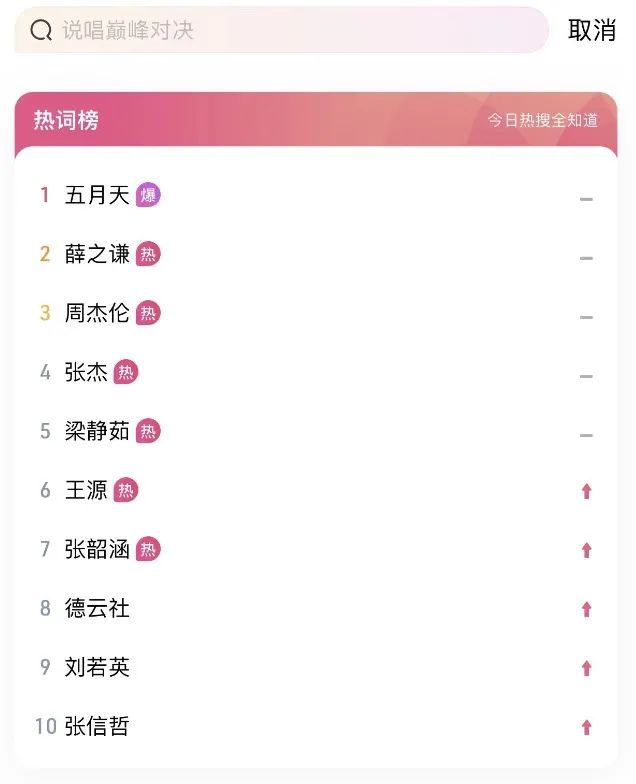
However, the entrance tickets for encounters belong to only a few people, and the concerts that are well-received and well-received are ultimately only a few. Behind the strong demand and the hot industry, there are many grass-roots teams who are eager for quick success and fish in troubled waters, planning sloppy projects with poor returns, and over-commercialization driven by interests. The extremely fragmented performance market is also correcting, improving and evolving in the selection of audiences again and again.
Outside of the dreamlike scene, this was actually a winner-take-all game.

Concerts "Bloom Everywhere"
Since mid-February, "traveling all over the country" has become the norm for many people in the performance industry, because there are too many concert projects that require pre-preparation, implementation and even waiting for acceptance. "So I travel frequently and fly everywhere," said one performance industry person.
The return of "retaliation" in the concert market is reflected in the audience level, and it is difficult to find a ticket. Data from the ticketing platform Damai shows that all 12 of Jay Chou’s "Carnival" world tour concerts in three cities have been exhausted in seconds, and the number of tickets for the most popular shows has exceeded 3 million; Xue Zhiqian’s "Out of the Sky" tour data remains high, and Quzhou, Foshan and Zhengzhou have all added. Some industry experts predict that the box office scale of the concert market will reach 3 billion yuan in the first half of 2023.
The Mayday concert even led to the overall heating up of Beijing’s accommodation industry. According to Meituan and Dianping data, during the Mayday concert on May 9, the day of invoicing, the number of accommodation bookings in Beijing during the Mayday concert increased by about 300% compared with the same period in 2019. Among them, the 5km around the concert venue, the Bird’s Nest, increased by 2,400%.
Holding a photo clock in hand outside the venue, shouting out the name of the person on the stage with all their might, participating seriously in the choral part of each song, turning on the flash of your phone to create a sea of stars, even holding up a paper bag just to catch the sprayed colored bars with lyrics – those warm and generous feedback are the most sincere praise and unabashed desire that an audience can give to a concert.
With a sore wrist, he swung the glow stick with another hand; his voice was hoarse, but he refused to stop singing and screaming. A spectator who watched Li Yuchun’s concert on the night of May 21 was so excited that he cried: "Looking at her face and listening to her voice, I feel that the memory of every cell in my body has been awakened. I haven’t seen you for a long time. It’s really nice to have a concert, and it’s really nice to meet."
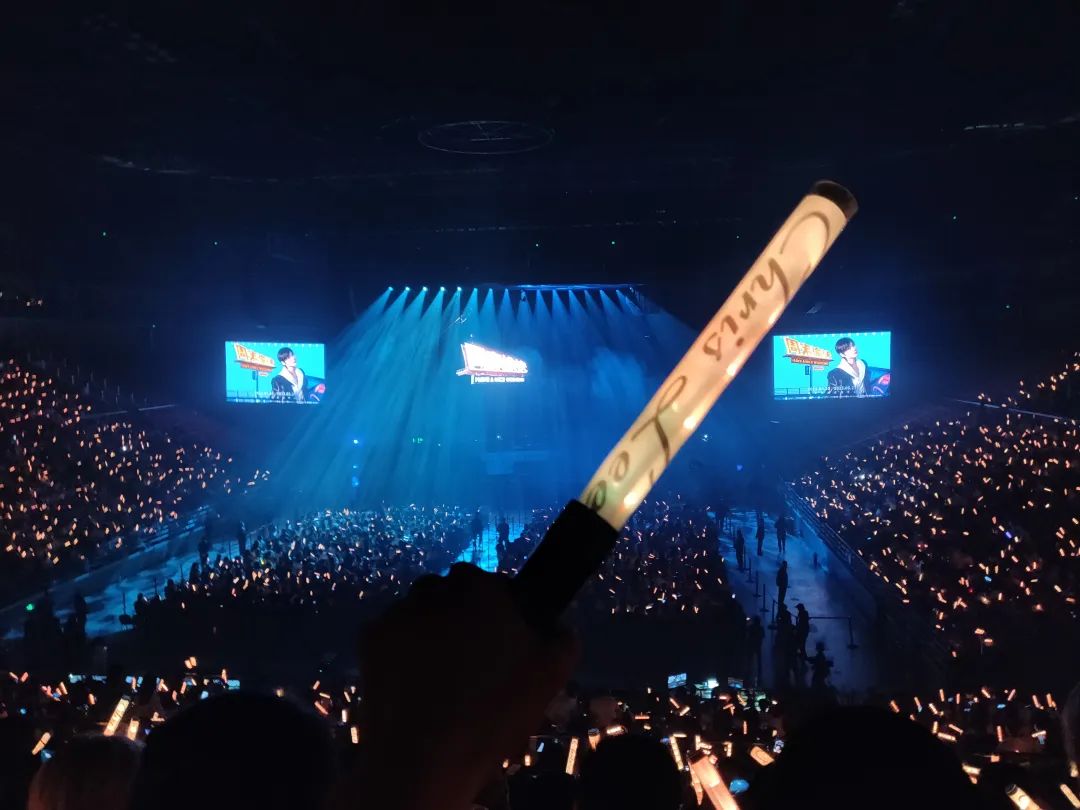
The same is true of the concert organizers. From the preliminary preparations to the decisive addition under the hot billing, the activism of the organizers formed a wonderful contrast with the madness of the audience. A concert organizer told the power plant that in the past three years, everything from the host company, the stage equipment rental company and the relevant supplier team have lost their working scenes. The upstream and downstream of the performance industry are facing huge cash flow pressure, and naturally hope to speed up the pace. "Everyone has been waiting for so long, and the preparations are basically ready. When there is work to do, of course, they have to rush to do it in a hurry to earn back the money for these three years."
In fact, a considerable part of the above concerts belong to the projects postponed due to the impact of the epidemic, such as the personal concerts of Jay Chou, Zhang Shaohan, Zhang Xinzhe, Xue Zhiqian and other singers, which have been postponed until now and finally restarted.
Of course, there are not a few players who temporarily organize the game. Especially in the more intensive music festivals, there are more than 40 music festival performances during the May Day holiday alone, which can be called a large-scale platter tour of leading bands and musicians.
Zhang Hubin, a former music industry practitioner, believes that the encouragement of consumption at the policy level has reduced the difficulty of concert approval to a certain extent. Therefore, on the one hand, concerts have come together and emerged in an endless stream; on the other hand, more and more non-first-tier cities have begun to get the opportunity to build a stage, which is one of the breakthrough points for promoting the integration of culture and tourism.
At the same time, there is another key reason for the "sinking" of concerts – the schedules of first-tier cities and major venues are extremely tight, and the organizers with strong singers and sufficient preparation in the early stage have already taken the lead, and other participants can only settle for the next best thing. What’s more, the concerts in first-tier cities are too dense, and in order to stagger each other, some organizers have taken a different approach, and instead tend to consider some unpopular cities that lack rich cultural life. "Maybe the passerby plate is not bad."

How to organize a profitable concert?
And beyond the hustle and bustle, a question is in the spotlight: Who will make money in this swarming concert battle?
Several interviewees told Power Plant that domestic concert revenue mainly consists of two parts, one is the box office, and the other is the commercial sponsorship. The former accounts for a high proportion, and the latter is "very small".
When it comes to the box office, the concerts that "sell well" are mainly divided into two categories. One is the very solid projects of passers-by, and the names of the artists are familiar. Jay Chou, Mayday, Eason Chan, Jacky Cheung, Stefanie Sun, and Lin Junjie all belong to this category. "They are all singers we have heard of before. In addition to the fans they have been following, their audience is still wide, and they are aimed at people with medium and high spending power in the true sense." The aforementioned performance industry person concluded.
In the eyes of the above-mentioned concert organizers, these projects can already be predicted to be sold out before the ticket is issued, and only top artists with a certain status dare to test the waters in a new city, or even open multiple games, because "this is a winner-takes-all logic."
As for the second category, there are artists who have come from the draft, with the advantages of a fixed fan base and a considerable base, and a very high level of repurchase. The disadvantages are equally obvious, and the sustainability is uneven – some people can be popular for more than ten years, the output is stable, and they are still active in the front line; some people can’t support a concert at all, and the content value declines sharply. After making a few years of fast money, it disappears.
In addition to the box office itself, making money is closely related to cost. According to Power Plant, concert costs can be divided into several parts such as artist show fees, venue rentals, stage equipment, ticketing platform services, and other costs.
In most cases, in order to ensure the consistency of stage art and lighting, Hong Kong and Taiwan artists used to bring their own stage art and lighting, stage hardware engineering and show fee packaging, and unified expenditure was not related to the box office. Ten years ago, the concert packaging cost of Jay Chou, Eason Chan and other artists was around 5 million to 6 million yuan, and now, this figure is expected to approach 10 million yuan or even higher.
In addition, there is an agency fee of 6% to 8% for the audience to buy tickets from the ticketing platform. The rental of venues, as well as other costs including security and free tickets, can be regarded as the operating costs of the organizers.
According to the above-mentioned people in the performance industry, the rent of main stadiums in various provinces in China is generally 300,000 yuan/day to 500,000 yuan/day, and the rent of stadiums is more expensive, ranging from millions of yuan/day to millions of yuan/day.
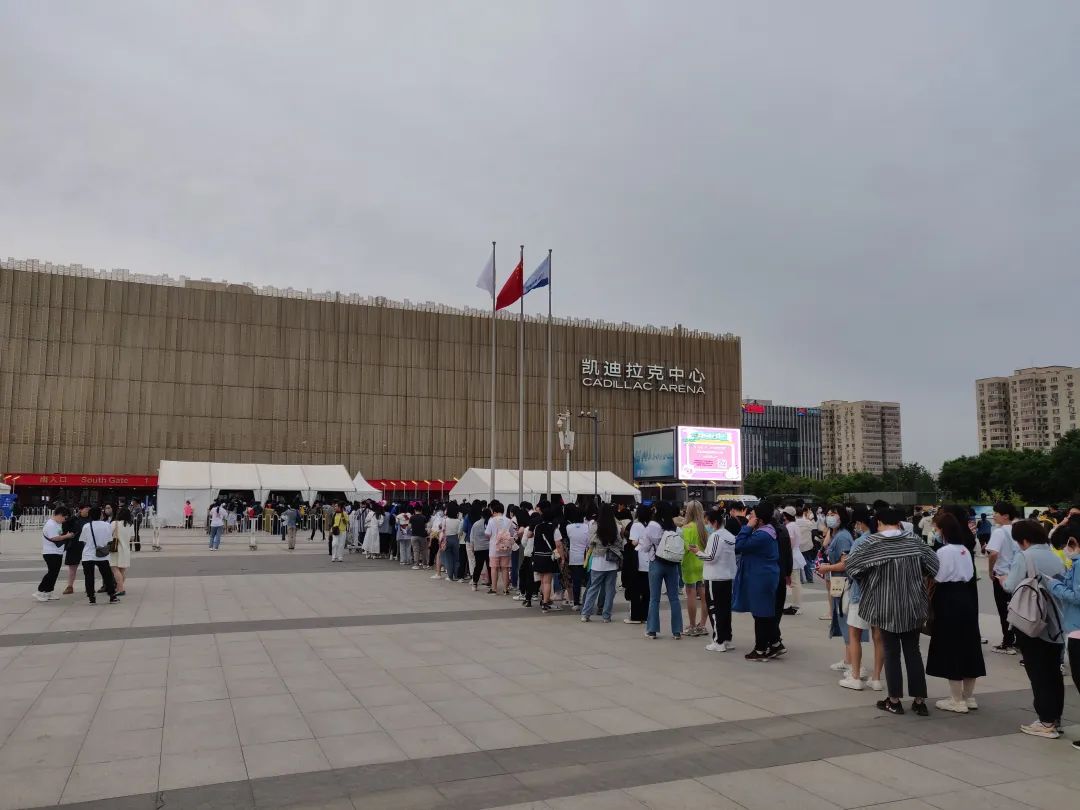
Taking the National Stadium "Bird’s Nest", which can accommodate 91,000 people, as an example, holding a personal concert here is the dream goal of many singers. In 2014, Xiang Jun, the executive deputy general manager of the National Stadium Co., Ltd. said in an interview with the media that the benchmark figure for the rental fee of the Bird’s Nest venue is 3 million yuan/day, and the specific venue fee fluctuates with some factors, such as the level and grade of the performance. The higher the number of people attracted, the lower the rent.
In Zhang Hubin’s view, this is an issue involving industry efficiency. The higher the venue utilization efficiency, the higher the income, and the lower the marginal cost; the lower the venue utilization efficiency, the higher the team cost and the worse the execution effect. However, most venues are currently vacant for a long time, the single cost remains high, and the additional costs such as free tickets leave the organizers with little profit margin.
All costs will be carefully calculated and woven into every ticket on sale. The difference between the mainland and Hong Kong concert ticket prices can be used as a note. One audience member grabbed a ticket to Eason Chan’s Hong Kong concert a few years ago, and the ticket price at that time was as high as 980 Hong Kong dollars, which is still basically the same. Compared with that, she mentioned that the price of 1680 yuan, 1880 yuan and even 2,000 yuan in the mainland is now "really expensive". "In Hong Kong, the cheapest ticket price is about the same as watching a movie."

Process and the roles behind it
For the audience at the lower reaches of the industry chain, ticket platforms such as Damai and Maoyan are the closest players. But in the whole process of concert preparation and completion, ticket sales are just one link.
Approval is the starting point of a concert, and only a series of permits can be obtained to hold the event. But before that, a number of preparations have been completed. First, the organizer contacts the artist team or the agency about the tour plan to determine the location, scale, theme, creative direction. Then, the organizer calculates the cost, gives the budget and box office planning. After the initial formation of the plan, the materials can be summarized and submitted to the local culture, public security and other relevant departments for approval, and after receiving the approval, the pre-sale will be started on the ticketing platform. With the completion of the invoicing, the stage construction of the venue and other work will be carried out step by step and in an orderly manner. A set of processes runs down, from the beginning of the preparation to the end of the performance, the whole cycle can be as short as two or three months, as long as half
Under normal circumstances, in the operation of a personal concert, the artist and the agency behind it control the content itself, which is at the top. The organizer is responsible for paying for it. In addition to personally connecting with the stage art and lighting design teams, it can also cooperate with some co-organizers, namely local performers. The latter undertakes tasks such as assisting with approval and on-site execution, and some of the platter concerts that rely on sponsor resources are also completed by them. It is worth mentioning that the role of the organizer is not fixed, and sometimes the artist agency itself can also be the organizer.
Then there is the ticketing platform, which involves exclusivity and distribution. In the past, the exclusive ticketing platform meant that there was only one ticket, but now the "general ticketing agent" gets most of the tickets, and other ticketing companies divide up the rest, the person in the performance industry said. The key here is the ticketing system used, such as whether the ticket is from Barley or from Cat’s Eye on the face of the ticket.
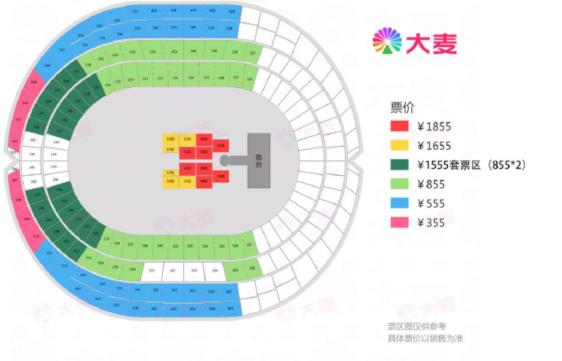
In addition, more detailed roles such as stage construction team, security, volunteers, etc. will also appear one by one. At this point, the character puzzle behind a concert has been roughly completed.
It should be noted that although there are many roles and the domestic performance market has maintained rapid growth before the epidemic, the industry branding trend is weak, and there is no pusher comparable to Live Nation – the global live performance industry giant, which covers ticketing, performances, and entertainment marketing solutions. There are more than 26 million visiting users every month, and more than 20,000 performances are produced for more than 2,000 artists around the world every year, reaching 200 million consumers through live performances and multiple platforms.
From a model perspective, CMC Live Chinese cultural performing arts is the closest to it. As a performing arts platform under Chinese culture, it formed an alliance with 21 leading performance companies in various provinces and cities at the end of 2017, covering the whole country. The aforementioned performance industry person told the power plant that the resource-centralized CMC Live Chinese cultural performing arts can participate in the preparation of most concerts, and its market share is bound to be very high, but even so, it is far from a monopoly.
"Because the industry is extremely fragmented, artists are also scattered in multiple agencies, and the size of concerts and the ability of artists are different." Based on the size of the venue, the concert market can be divided into four categories. From the smallest Live House level, to theaters that can accommodate one or two thousand people, to stadiums with as few as three or four thousand people, and as many as ten thousand people, eventually evolving to stadiums with 20,000 or 30,000 people in small venues, 50,000 or 60,000 people in large venues, and even higher. From small to large, it constitutes a growth path for an artist to hold concerts, and also creates different opportunities for companies of different sizes. For example, some companies only host concerts above the stadium, while others prefer to cooperate with fixed agencies.
Mr. Zhang noted that the gig industry has so far grown that such a huge market has not been able to produce a true "Chinese version of Live Nation" because every city has at least one company that can act as a concert organizer. "This company can’t be bypassed in any way, which makes it impossible for a higher-level national performance organization to exist. There is no way, and it cannot be worn at all."

Strength and professionalism win
In fact, the bigger contradiction at the moment is that the performance industry urgently needs to regain the "territory" that has been lost for three years, and is delivering products with doubled production capacity. However, in the face of such a high concentration of the market, although the demand for watching concerts has been concentrated, the overall consumption power is ultimately limited, and the audience’s enthusiasm, attention and freshness for concerts under irrational demand will always be exhausted one day. "This must be a game of drumming and passing flowers, which has been passed on until a certain point suddenly collapses. Some music festivals are already losing money," Zhang Hubin said.
Especially in cities that have never held concerts before and have been overdeveloped, "this phenomenon will be more obvious in the second half of the year, and it will be found that tickets cannot be sold," the aforementioned performance industry person added.
Once the attendance rate is low and the scene is empty, it will not only be detrimental to the survival of the organizers, but also directly affect the position of the artists in the performance market. The reputation of the latter’s concerts has declined, the number of concerts has dropped sharply, and the city level is getting smaller and smaller, and the overall scale is getting smaller and smaller.
A former music industry figure believes that for some idol artists, concerts are as important a source of income as endorsements and variety shows. On the one hand, they are not singer-songwriters and lack copyright income; on the other hand, if there is a small audience outside fans, the income generated is not even as good as the so-called platform Divine Comedy.
This may explain why artists who have not released a new album for a long time are also keen to hold personal concerts – for income. However, the bigger role of concerts is communication. Every time an artist goes to a city, thousands or tens of thousands of people will meet and fall in love with him again, which can be regarded as a ground marketing method to continue his career. If the box office performs well, the commercial value of the artist will be further enhanced.
Over the past decade or so, concerts have operated in a relatively fixed mode, with both deep-rooted professional companies that fully understand the music industry and grass-roots teams who have jumped into the game to make a fortune. The above-mentioned performance industry people predict that this situation will change from this year after the baptism of uncertainty. That is, concert resources will be more close to companies with strong strength, strong professionalism, good at integrating high-quality content IP, accurate judgment and decisive execution.
"Concerts are a kind of high-risk investment, and tens of millions of yuan will be invested at every turn. Everyone wants to cooperate with a strong, professional and reliable team, and the requirements for the organizers will become higher and higher. It is not very likely that an external company wants to come in and do concerts casually." The person added.
No matter how the industry wind continues to blow, what audiences really care about is whether they can grab tickets to the concerts of their favorite singers. This seems to be an unsolvable problem under the premise that there is a certain proportion of free tickets, the gap between the number of votes and the number of people who grab tickets, and the nature of popular concerts tends to be financial, with huge hidden interests behind them.
Recently, Liang Jingru and Liu Ruoying’s concert in Shanghai has implemented the "strong real-name system" ticket purchase rule, that is, "person, certificate and face" are integrated, and you must carry your ID card bound to the ticket, verify the ID information and pass facial recognition before you can enter.
It seems that this does effectively limit scalper scalping behavior, but it has also evolved into a double-edged sword. Since refund and transfer are not supported, tickets can only be wasted when the audience encounters emergencies. What’s more, the gift of tickets is not limited, and the restrictive effect is only for the kind of grabbing, as well as ordinary audiences.
Even so, a standardized and flexible ticketing system is still the development direction of the future performance market. If the concert is a beautiful dream, except for the lucky few who get tickets, more people are still lining up and waving the number plate of love. In the original vision of the dreamer, the opportunity to dream should belong to all equally.
The original title: "Power Plant: Why are all the singers you love holding concerts?"
Read the original text